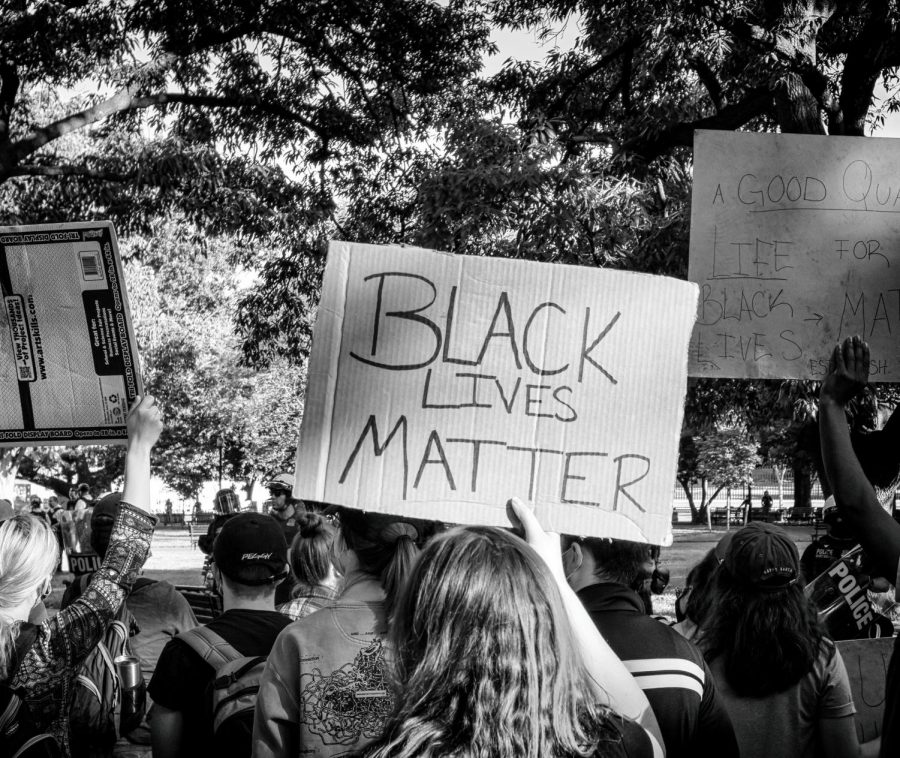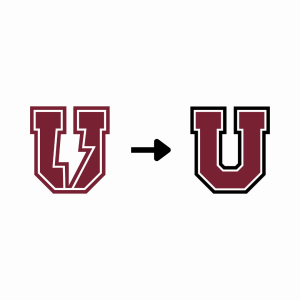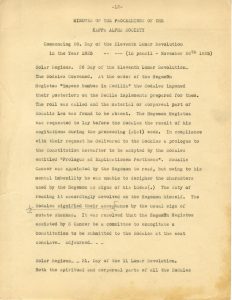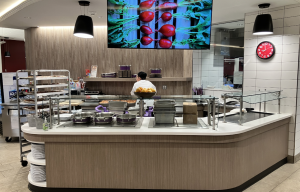Union organizes a panel discussion on racial injustices
Widespread protests have started all across US in response to the murder of George Floyd.
June 6, 2020
On June 4, the President’s Office hosted a seminar titled “Racial Injustice: What Can U Do?” with ten panelists including Union faculty, administrators and students along with Schenectady Police Chief Eric Clifford ‘94. The discussion was moderated by Fran’Cee Brown-McClure, the Vice President for Student Affairs and Dean of Students. This event was organised in the wake of the murder of George Floyd by an officer from the Minneaopolis Police Department that has prompted protests across the United States. The webinar was attended by more than 500 people from the Union community.
President Harris started the event with an announcement that he will be sharing information on a new Presidential Initiative on Race in the coming days in the hopes of better community engagement on this issue.
The seminar began with a slide show of responses from Union faculty, staff and students to the recent acts of racial injustices in the country. Following the slide show, Dean FranCee asked everyone to observe a few moments of silence for George Floyd as well as all those who have suffered at the hands of racism. Dean FranCee then asked all panelists to share their initial reactions to the news too. She began by sharing her immediate reaction which was “numbness”. “I’m raising a child and I’m afraid that she will be judged for the colour of her skin, something that she didn’t have control over,” she said.
Jared Zeidman, Associate Head Coach for Women’s Basketball expressed how he was astonished at the hypocrisy of how peaceful protestors were deemed a threat by the law enforcement but not “those white men who stormed the Michigan State House”. Earlier this month, protestors stormed into the Michigan State House demanding that the state be reopened. While no action was taken against them by the police, the law enforcement made ample use of tear gas and pellet guns to quell the recent protests, according to the New York Times.
Chief Clifford said that police leaders should not sit on the sidelines when these things happen. ”I’m not sitting on the sidelines, It’s wrong, what happened to George Floyd,” he said. Katheryn Lynes, Associate Professor of English expressed similar sentiments saying that there is a need to create and foster a better environment.
”I’m frustrated and mad that it required the execution of someone handcuffed in broad daylight to get people worked up,” Matt Milless, the Assistant Dean of Students said. He mentioned how as a black male, he has to always assume that people think of him as a threat and he often uses his smile to disarm such people. “Covid-19 has taken away my ability to smile at people with the mask,” he said.
Professor of Spanish and Hispanic Studies, William Garcia observed how systemic racism and police brutality are not unique to the US which is why a lot of countries, especially in South America have protests right now too. “I’m happy that I’m not raising a child in this country,” he said.
Richard Boakye’20 said “The past few weeks have been beyond imaginable.” He talked about how he will be graduating in two weeks, at a time where he along with the rest of the senior class will be “fighting for their lives”.
President Harris who had previously shared his reflections in a video uploaded to his Instagram handle and youtube page mentioned some of his personal experiences with the police. He posed the question of whether this incident was the “Sandy Hook of racism” probing listeners to consider whether things will have changed in a few months. Sarah Vanasse’21 mentioned how as a white person, she is taking this time to listen and understand better. Ending this segment of the discussion, Chief Diversity Officer Gretchel Hathaway expressed how the “inequities of the country” hit her when she learnt about Floyd’s death and how as a mother she felt for Floyd’s mother who lost her child.
Following this, as an exercise, Dean FranCee asked everyone to put up ten fingers and read ten statements regarding police demeanor and race biases. Participants were asked to put a finger down each time they have had such an experience. “The purpose of the activity was to demonstrate privilege,” Dean FranCee said. Attendees at home were sent a poll on how many fingers they had up. When the results of the poll were shared, an overwhelming number of people had all ten fingers up demonstrating privilege of the whole community.
Dean FranCee then began asking panelists the questions submitted by the attendees. The first question probed about what Union, as a predominantly white institution, is doing to show that black lives matter. In response, Hathaway said that Union does a lot of programming on the issue but there are not a lot of students who attend them. She also mentioned that workshops will be offered to faculty in the summer to teach them how to be more inclusive in class. Dean FranCee then proposed the idea of Mandatory Diversity Training as a part of the General Education Curriculum. President Harris voiced his opposition to the idea citing the reason that making the course compulsory would make it just another check-box rather than a learning experience for the students. Dean FranCee also mentioned the importance of Residential Curriculum saying that it “takes what is happening in the classroom and pairs it with what’s happening outside the classroom”.
Responding to a question about policing in Schenectady, Chief Clifford talked about how he has worked on the relations between the Schenectady community and the police. He mentioned that the department trains yearly on implicit bias and procedural justice.
“There are 4 pillars to procedural justice,” he said. According to him, these include fairness, transparency, provision of an opportunity for voice and impartiality in justice. “We talk about this on a daily basis. Every arrest is looked at closer,”he said.
Further, he mentioned that he is taking a hard look at arrests related to possession of marijuana and other substances to check whether the police aren’t just arresting members of the community because they are people of colour. Other initiatives he has taken include field interviews with community members regarding their experiences and partnering with Catholic charities to have professional people come in to help officers understand how to handle people who may suffer mental health issues.
Assistant Dean Milless asked Chief Clifford whether there’s diversity within the force and opportunities for dialogue. To this, the Chief replied that there isn’t much diversity mainly due to barriers in recruitment and the length of the recruitment process.“This is perpetuating the problem. We have a white police force and a very diverse community,” Milless observed.
When talking about institutional racism and microaggressions on campus, Milless highlighted the need for safe spaces to report such incidents. Zeidman who has previously worked with ResLife mentioned that often if there is something that would create tension, socially, it seemed easier for people to keep the waters calm. He also mentioned that he actively tries to recruit women of colour but he often hears them voice concerns about how they don’t see people like themselves on campus. “We need to increase the diversity on campus,” he said.
Dean FranCee mentioned that faculty and staff experience a number of microaggressions too.
Professor Garcia said “White privilege can be pernicious at times and microaggressions happen.” He further elaborated on how he had been recently asked to fill an anonymous form but the first question on the form asked about his ethnicity. The second was about gender and the third about the building he worked in. Garcia felt that as a Latino male professor who works in the Karp building, the form didn’t do anything to preserve his identity.
Ending the seminar, all panelists agreed that the biggest problem on campus remains to be privilege and as an institution, Union needs to take a lot of steps to bring about a change.
Boakye ’20 told the Concordiensis that he had hoped this panel would “spark the bigger conversation” but he won’t be satisfied until “a whole shift occurs where we are all treated equally”. He mentioned how he has witnessed how privilege sets many Union students apart from him on campus. “Racial injustice does occur on campus because I’ve had numerous conversations with black students about their experiences and how it makes them want to leave Union. This should not be happening, it should be a community for everyone and that’s on staff, faculty, and students to ensure they are educated in the matters that “separate” us all. If it’s in institutions, it will carry outside as we graduate.” he said.
“Union needs to continue to have these conversations, as uncomfortable as it may be, and begin to mobilize to break down barriers. This movement should not be a black fight alone, but everyone’s fight,” Boakye said.







